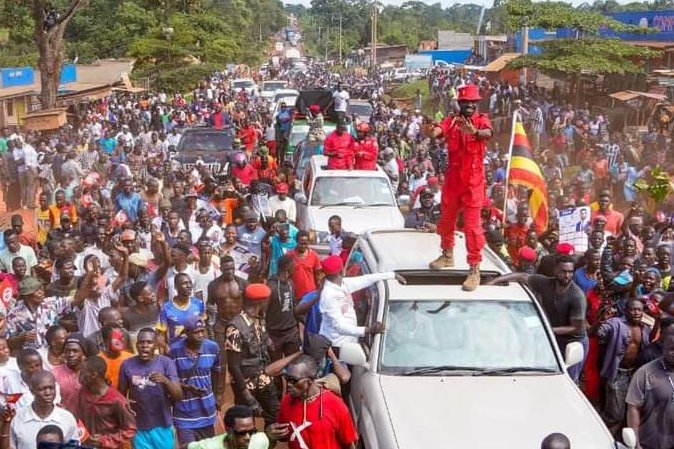Leaders of the National Unity Platform (NUP) have announced that they will continue their mobilization activities as scheduled, following a closed-door meeting with police authorities.
This development comes after a police invitation was extended to NUP members on Monday to address disagreements regarding the conduct of their mobilization tours.
Speaking on the sidelines of the meeting at the police headquarters in Naguru, Joel Ssenyonyi, the Leader of Opposition in Parliament, confirmed that the meeting concluded with an agreement not to halt or ban the party’s activities, as they are within the legal framework. However, he noted that the police leadership indicated they would organize specific routes for the NUP leaders during their mobilization tours.
“They told us that they will get back to us for any kind of guidance, but the idea of banning our activities has no place in the law, and we agreed on that. They said if there is a particular concern or route they want us to follow, they will communicate with us, and we have no problem with that. So Mukono is happening as scheduled tomorrow while we await their communication. The most important thing is that our activities continue,” said Ssenyonyi.
Among the members who attended the meeting were Chief mobiliser Fred Nyanzi, NUP senior counsel Medard Ssegona, Secretary General Lewis Rubongoya, and others.
Last week, the NUP submitted a protest letter to the police, objecting to what they described as unfair and harsh treatment of party leaders and supporters during their mobilization tour in Kamuli. They alleged that police deliberately obstructed their lawful activities, fired teargas at supporters, and denied the party principal, Robert Kyagulanyi (aka Bobi Wine), the opportunity to hold meetings. Similar incidents reportedly occurred in Pallisa and Tororo.
On Thursday, NUP members, led by Joel Ssenyonyi, Rubongoya, and Deputy Dr. Lina Zedriga Waru, stormed the police headquarters in Naguru, Kampala with a petition claiming that despite officially notifying the Inspector General of Police (IGP) in advance about their countywide mobilization tour, the police interrupted their activities in Kamuli. Ssenyonyi insisted that the party is determined to continue its mobilization campaigns, as they are operating within the law.
In response to the protest letter, the police leadership called for a meeting with the NUP leadership, asserting its role in maintaining law and order. Fred Enanga, the police spokesman, explained that prior to the second phase of activities, the police had requested the NUP to provide a comprehensive program and schedule of activities, proof of permission from venue owners, and measures for public safety and health. They were also instructed to liaise with police commanders and district security committees to harmonize security arrangements.
Enanga explained that in their communication to the police, they advised the party against holding open rallies, processions, protests, or inciting violence, as these actions contravene the regulations for party consultations. He cited Article 29 of the Constitution, which recognizes freedom of assembly but not at the expense of others’ rights or public interest. He emphasized the police’s duty to maintain public safety and order during assemblies and processions.
“We wish to reiterate that as the Uganda Police Force, we recognize that Article 29 of the Constitution protects freedom of conscience, movement, assembly, and association. However, Article 45 clearly states that in enjoying these rights, no person should prejudice the human rights and freedoms of others or the public interest,” he said.
The police also referenced Articles 211 and 212 of the Ugandan Constitution, which mandate the police to protect life, property, and preserve law and order. Additionally, Section 4 of the Police Act Cap 303 mandates the police to ensure public safety and order, and Section 32 (1)(b) of the Police Act provides the police with the power to direct the conduct of assemblies and processions on public roads or streets, or at places of public resort, including the routes and times for processions. The Public Order Management Act also grants the police the power to regulate public conduct and rallies.
Enanga further dismissed allegations that the NUP is specifically targeted and restricted from mobilizing and organizing itself, noting that the party has been non-compliant with police communications.
The Uganda Police is yet to issue an official communication on what transpired during the meeting.
According to the NUP program, their second phase of tours are expected to happen this week in Mukono, Masaka, Kyotera and Bukomansimbi.




